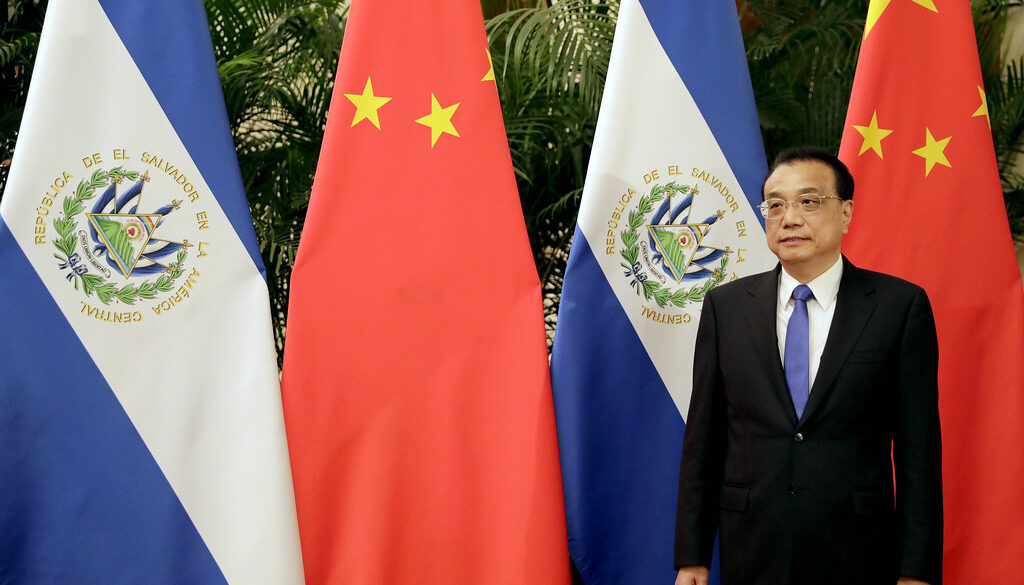A possible free trade agreement between El Salvador and China
Table of Contents
Contact the Central American Group to invest in manufacturing in El Salvador.
A free trade agreement between El Salvador and China could benefit the former economically. Although it could, however, carry some risks as well.
“Uncertainty” is the word that could best define the scenario in which El Salvador currently finds itself.
The bankruptcy of one of the world’s most significant cryptocurrency buying and selling platforms, FTX, was recently announced. This event resulted in a collapse in the value of Bitcoin.
Furthermore, the event focused the eyes of the world on the Central American country, given that President Nayib Bukele decided to make Bitcoin legal tender in the nation in 2021. In addition, El Salvador’s chief executive invested a large part of the money from his nation’s tax coffers in that asset.
“Unfortunately, when one requests information on how many resources have been invested in Bitcoin, what one gets as an answer is that this information does not exist or is confidential,” Ricardo Castaneda, coordinator for El Salvador of the Central American Institute of Fiscal Studies (ICEFI).
The economist explains that in his country, the calculations of what is invested in Bitcoin are made only by considering the president’s tweets. According to what has been expressed by the president, the investment could be in the order of 120 million dollars.
If so, El Salvador could be facing challenging economic times. One of the actions the Bukele administration is pondering to ease the country’s challenging fiscal circumstances is a possible free trade agreement between El Salvador and China.
A new economic partnership between China and El Salvador
The statements that the Salvadoran government authority made this past November did not go unnoticed, although the Xi Jinping regime never confirmed this. What was ratified on November 10, 2022, was a letter of intent expressing the interest of China and El Salvador to start negotiations for a Free Trade Agreement (FTA) between the two countries. President Nayib Bukele and Ambassador Ou Jianhong met in San Salvador to mark this event.
In 2018, El Salvador had already shown signs of rapprochement with the second-largest economy in the world after it ended its direct diplomatic relations with Taiwan. This strategic move brought a series of tangible benefits to the country. For example, China has given three donations to El Salvador: The construction of an amusement park on its coast, a stadium that has not yet been built, and a library. The government of Xi Jinping made these investments to improve his nation’s image among El Salvador’s citizens.
Desiree Reder, a researcher at the German Institute for Global and Regional Studies (GIGA), based in Hamburg, adds that the current conditions of democracy in El Salvador also deprive him of an ability to approach other countries that criticize Bukele’s style of government, such as the USA.
“In that sense, China does not apply sanctions to countries based on human rights, which is why strengthened ties with China, including a possible free trade agreement, can be a solution. The big question is whether the benefits outweigh the costs in this relationship,” expressed Reder.
A free trade agreement between El Salvador and China carries risks
Although an eventual alliance with China could mean a much-needed “lifeline” for the Salvadoran economy, experts agree that such an agreement could also bring a series of risks. “Nothing is free,” Reder said.
“El Salvador could see some benefits in infrastructure, which are already being observed, but China expects something in return. It could be exclusivity in commercial benefits or to demand certain projects in areas that may be protected or that may affect some communities,” added the academic
Similarly, the economist Castaneda doubts whether a free trade agreement between El Salvador and China is good for the former nation. On the contrary, he believes that El Salvador would be negatively affected.
In addition, he expressed that it is a clearly political move. “Let’s remember that President Bukele wants to be re-elected and, practically, has few staunch allies at the international level. This is in addition to the fact that tensions with the United States are considerable. So what Bukele is looking for is that his decisions are supported, and China does not stand out, precisely, for its defense of democracy,” he stated.
The experts also have questions regarding China’s real interest in El Salvador. This is mainly because the Central American nation is different from Brazil or Panama, for instance, on a strategic level. However, they also point out that China has been strengthening and increasing its relations with Latin America in recent years to, little by little, break the dependency that the region has had for decades on the United States. That would be one of the primary motivations for the actions of the Xi Jinping regime in El Salvador and the rest of the Americas.
Contact Us
Please use this form to contact us and we will respond as soon as possible:
Contact Us
Please use this form to contact us and we will respond as soon as possible:
Contact Us
Please use this form to contact us and we will respond as soon as possible:
Contact Us
Please use this form to contact us and we will respond as soon as possible:





